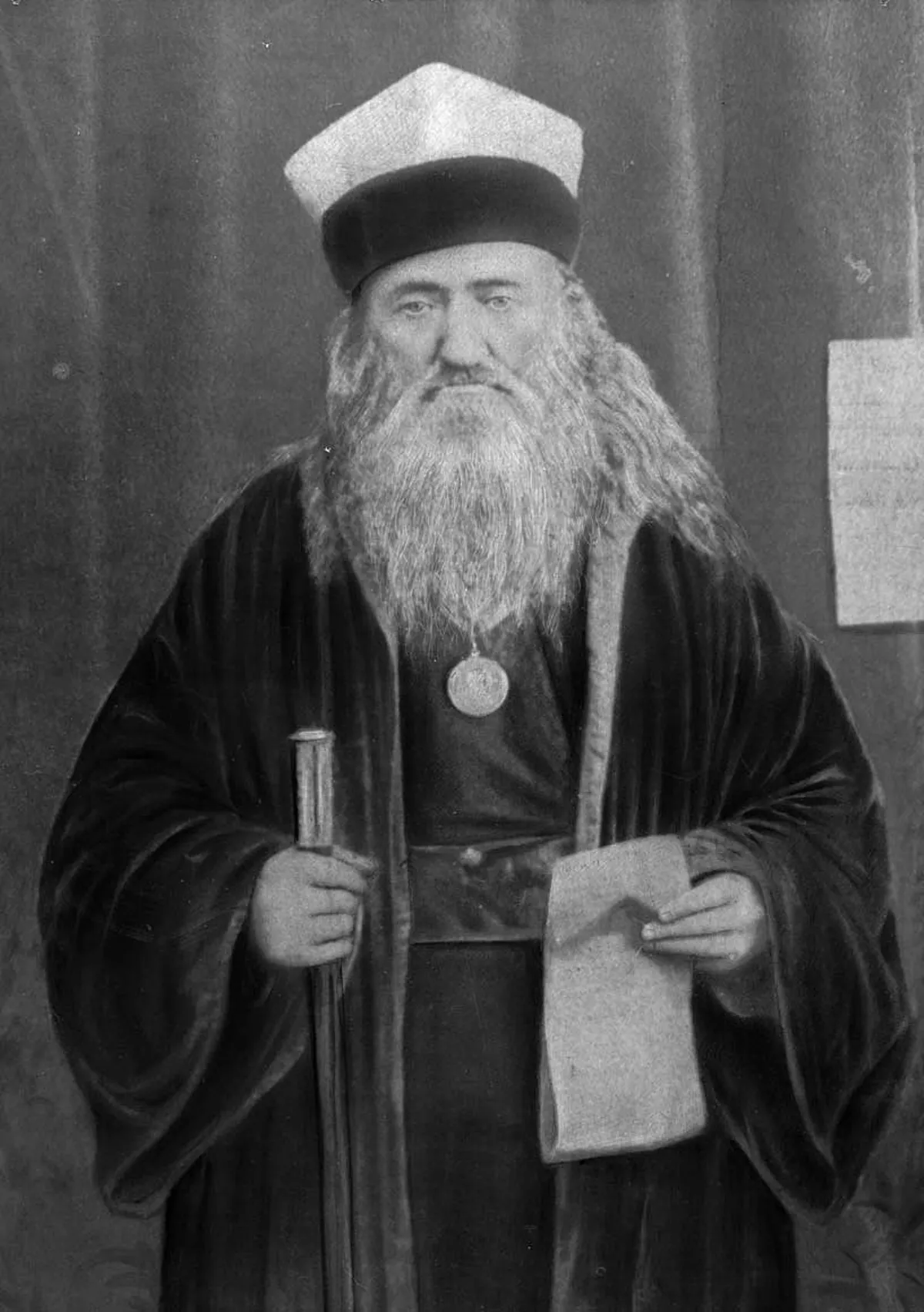 1.
1. Abraham Firkovich was born in Lutsk, Volhynia and died in Cufut Qale, Crimea.

 1.
1. Abraham Firkovich was born in Lutsk, Volhynia and died in Cufut Qale, Crimea.
Abraham Firkovich was born in 1787 into a Crimean Karaite farming family in Lutsk, then part of Poland, now Ukraine.
Abraham Firkovich published a book, "Massah and Meribah" which argued against the predominant Jewish halakha of the Rabbinites.
In 1839, Abraham Firkovich began excavations in the ancient cemetery of Cufut Qale, and unearthed many old tombstones, claiming that some of them dated from the first centuries of the common era.
Abraham Firkovich travelled as far as Derbent, and returned in 1842.
Abraham Firkovich returned to spend his last days in Cufut Qale, of which only a few buildings and many ruins now remain.
Abraham Firkovich collected a vast number of Hebrew, Arabic and Samaritan manuscripts during his many travels in his search for evidence on the traditions of his people.
Abraham Firkovich's visit took place about thirty years before Solomon Schechter's more famous trip to Egypt.
Abraham Firkovich's theories persuaded the Russian imperial court that Crimean Karaites could not be accused of Jesus' crucifixion and they were excluded from the restrictive measures against Jews.
In sum the Abraham Firkovich collection contains approximately 15,000 items, of which many are fragmentary.
Abraham Firkovich's collections represent 'by far the greatest repository of all Judaeo-Arabic manuscripts' and are today held in the National Library of Russia in St Petersburg, while microfilm reproductions of all the manuscripts are held in the Institute of Microfilmed Hebrew manuscripts at the Jewish National and University Library, Jerusalem.
In 1864 Abraham Firkovich acquired a large collection of Samaritan documents in Nablus.
Abraham Firkovich sold the documents to the Imperial Public Library in 1870.
Abraham Firkovich possibly collected from the Cairo Geniza thirty years before Solomon Schechter discovered it.
Abraham Firkovich sold this collection to the Imperial Public Library in 1873.
Abraham Firkovich has come to be regarded as a forger, acting in support of Karaite causes.
Abraham Firkovich wished to repudiate any connection between Rabbinic Judaism and the Karaites, declaring that the Karaites were descendants of the Ten Lost Tribes.
Abraham Firkovich successfully petitioned the Russian government to exempt the Karaites from anti-Jewish laws on the grounds that Karaites had immigrated to Europe before the crucifixion of Jesus and thus could not be held responsible for his death.
Chwolson alone defended him, but he was forced to admit that in some cases Abraham Firkovich had resorted to forgery.
Abraham Firkovich's collection remains of great value to scholars of Jewish studies.